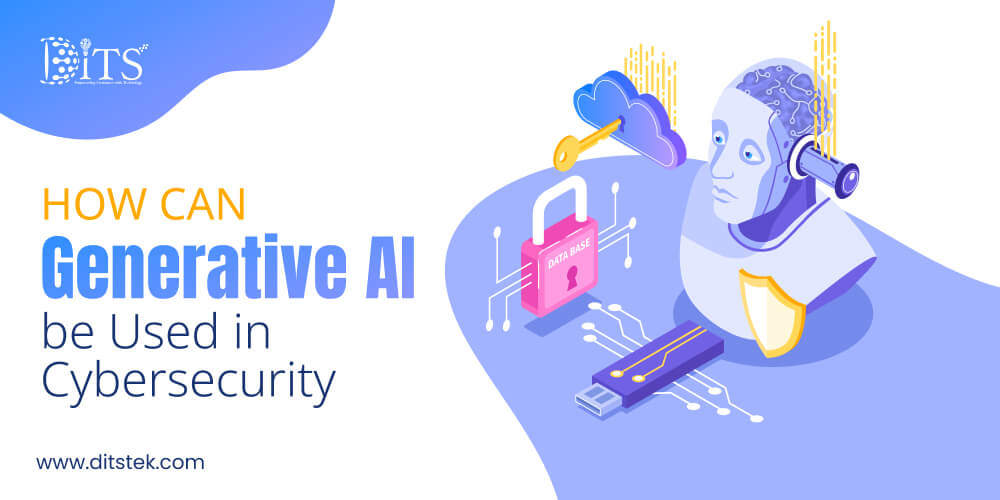Implementation of AI in Claims Processing
Table Of Content
Published Date :
12 May 2025
In the industry of insurance and claims processing, AI is the pivotal game-changer, to some extent. It is revolutionizing businesses by enabling them to handle claims faster and with complete accuracy. As a leading AI software development company, we understand the immense potential of AI in streamlining claims workflows, reducing human error, and improving overall efficiency.
With the power of data-driven technology, natural language processing, and data analytics, AI software solutions are transforming the claims process into a secure, accurate, and cost-effective system. Let’s explore how AI is reshaping claims processing, its benefits to insurers and customers, and how our innovative solutions are helping companies stay ahead in this competitive landscape.
Ready to Transform Your Claims Process with AI?
Streamline operations, reduce costs, and enhance decision-making with our custom AI solutions built for insurers. Let’s build smarter claims processing together!
Advantages of AI in Claim Processing

AI helps the claim procedure by streamlining the workflows, enhancing accuracy, detecting fraud, and improving customer satisfaction. A custom artificial intelligence software solution enables faster resolutions, reduces manpower costs, and transforms traditionally followed insurance operations with advanced automation and data-driven insights.
Accelerated Claim Resolution
Artificial intelligence-based claim management software solution helps firms in reducing the overall time required to process claims by automating repetitive tasks. It enables insurance companies to handle high volumes of data efficiently to deliver accurate and transparent results. Faster turnaround not only improves operational efficiency but also improves customer satisfaction by providing quick resolutions and payouts.
Reduced Errors
AI technology reduces the chances of human error by using machine learning algorithms to analyze data claims with precision. It leads to perfect assessment accuracy, minimal disputes, and enhanced decision-making. Implementing AI into claim procedure management reduces the risk of costly mistakes slipping through the human cracks.
Enhanced Fraud Detection
The integration of AI into the insurance business helps the company flag suspicious claims in real time, save money, and protect crucial data. The AI technology creates a report of potential fraud by using an extensive database and identifying claim patterns.
24/7 Claim Processing
AI based chatbot development and advanced platforms, operate around the clock, which enables insurers to handle inquiries and initiate claim processing without any delays. This ensures greater accessibility for policyholders and uninterrupted service, especially during peak periods or emergencies.
Cost Efficiency
An automated claim procedure reduces the need for additional manual labor and minimizes administrative overhead. It also leads to cost savings by making the bandwidth for human resources to provide more time on more complex work instead of repetitive work & to add efforts into value-driven tasks such as customer relationship management and strategic planning.
Better Customer Experience
AI in the insurance business improves the users’ journey with faster, transparent, easy-to-understand, and customized interactions with an advanced NLP chatbot. From easy and instant claim updates to customized communication, artificial intelligence helps insurance companies deliver a seamless and accurate experience to build trust and credibility among policyholders.
Let’s Build the Future of Claims Processing!
AI is not just an upgrade, it’s a shift in how insurers operate. Partner with us to create intelligent, efficient, and scalable claims systems that deliver real results.
Necessary Features of AI for Claim Processing & Management

AI tools for claims procedures must come with practical features like process automation, API integration, fraud detection tools & algorithms, and real-time analytics to ensure efficiency of operations for insurance, cost control, and reliable decision-making for insurers.
Scalable Automation
Businesses with AI technology can automate repetitive tasks like document classification, data extraction, and assessments to save time in processing claims. The automation procedure in the industry with AI technology helps reduce operational costs, shortens processing times, and enables insurers to manage high claim volumes without adding headcount.
Data Extraction and Validation
Using AI technology for extraction and validation makes the process easy and accurate. Artificial intelligence helps insurance companies extract structured and unstructured data from various sources, such as PDFs, images, forms, etc. It improves accuracy, helps process claims faster, and ensures better decision-making.
Integration with Existing Systems
AI tools should integrate seamlessly with legacy claims management platforms and CRM systems. Compatibility reduces disruption, accelerates deployment, and ensures efficient data flow across the organization without the need for large-scale infrastructure changes.
Real-Time Analytics
The business should include AI technology in the admin dashboard to get real-time analytics, reports, and data-driven predictive analytics. The AI integration into the admin panel helps to improve productivity, enables teams to monitor claims, detect bottlenecks, and allows the company to improve decisions based on the large database.
Customizable Workflows
Businesses need AI tools that can adapt to unique internal workflows and regulatory requirements. Customizable workflows ensure compliance, streamline operations, and allow claims teams to maintain control over decision logic and escalation paths.
Built-In Fraud Detection
A strong AI system should include fraud detection capabilities that analyze behavior, data patterns, and anomalies. Identifying suspicious claims early reduces financial losses and enhances overall claims integrity without slowing down legitimate processing.
Cost to Integrate AI in Claim Procedure
| Component | Description | Estimated Cost (USD) |
| Consultation & Strategy Planning | Initial assessment, workflow analysis, and business goal alignment. | $5,000 – $15,000 |
| Data Preparation & Integration | Cleaning, structuring data, and integrating with legacy systems. | $10,000 – $30,000 |
| Model Development | Building custom AI models (e.g., NLP, image recognition, predictive analytics). | $25,000 – $100,000+ |
| Software Development & UI/UX | Creating dashboards, interfaces, and back-end services. | $20,000 – $60,000 |
| Testing & Validation | Model accuracy testing, user testing, and QA. | $5,000 – $15,000 |
| Deployment & Integration | Setting up in production, cloud configuration, API connections. | $10,000 – $25,000 |
| Training & Change Management | Training staff, documentation, and support for adoption. | $3,000 – $10,000 |
| Ongoing Maintenance & Support | Model tuning, updates, and tech support. | $2,000 – $10,000/month |
Total Estimated Range: $80,000 – $250,000+ (depending on scope, complexity, and features).
Want a Custom AI Software with Unique Features & in a Friendly Budget!
Industries Using AI for Claim Processing
When we get insurance for phones, furniture, and from home to vehicles. Each of the small to large industries is using insurance and also integrating AI into the business to deliver excellent, accurate and faster results.
Insurance
The insurance industry has experienced the most direct gains from AI for claims processing. The artificial intelligence reduces additional and repetitive manual workloads, speeds up claim approvals, and enhances fraud detection. It leads to lower operational costs, faster settlements, and enhanced customer service—key drivers for customer retention and profitability.
Healthcare
In the healthcare industry, artificial intelligence software helps the medical claims process run faster and with greater accuracy. AI software developers built the algorithm to reduce administrative overhead by automating coding, eligibility checks, and documentation review. Insurers and healthcare providers benefit from fewer claim denials and improved cash flow management.
Automotive
AI boosts the various claims related to vehicle damage by examining the pictures and videos, and estimates a more accurate repair cost of the vehicle. The AI in claim management helps the automotive businesses & insurance companies not to rely completely on physical inspections and shortens the time from accident to payout. It improves customer satisfaction and reduces claim cycle costs for auto insurers and service providers.
Property Management
AI processes property damage claims from natural disasters or accidents more efficiently. A real estate business with AI & custom app development can enhance the performance & can automate damage assessment and documentation analysis. A high-end full-stack software integrated with AI helps property insurers and facility managers handle claims quickly, reduce losses, and maintain trust during high-stress situations.
Travel and Hospitality
AI simplifies trip cancellations, lost luggage, or travel delay claims. With AI technology, it automates the documentation review and payment processing; travel insurers minimize delays. It helps businesses enhance customer support for travelers who need quick resolution during disruptions.
Workers’ Compensation
AI aids in processing workers’ compensation claims by regulating the document verification and medical record analysis. AI helps to identify fraudulent or high-risk claims early, ensuring timely payouts to legitimate cases and reducing legal disputes and administrative expenses for employers and insurers.
How to Integrate AI in Claim Processing
The integration or custom AI software development process is a complex task, and it is always advisable to hire AI development company in NYC to develop advanced and custom AI technology to integrate into the business.
Assess Current Claims Workflow
Analyze the existing claims processes and requests to identify inefficiencies, repetitive tasks, and data bottlenecks. This will help businesses to prioritize areas where AI solutions can enhance and ensure a more accurate and cost-effective implementation of AI algorithms & strategy.
Business Objectives
Make an accurate and specific goal, to reduce claim cycle timing, lower the operational costs, or improve the fraud detection procedure and technology. It will help the platform with resource allocation and help evaluate the success of AI integration over time.
AI Technologies
Either hire a dedicated team of AI developers to gain ideas to select AI tools based on business needs, such as natural language processing for document analysis, computer vision for image-based assessments. The AI technology should be aligned with both current operations and long-term strategy.
Hire Custom AI Developers
Instead of building an in-house team for integrating AI technology into business operations, hiring an offshore software development company would be beneficial in many ways. An offshore company provides a cost-effective solution, dedicated AI developers, multiple engagement models, and on-time deployment of technology.
Integrate with Existing Systems
The development company will ensure that AI solutions will integrate seamlessly with legacy claims management systems and databases. A dedicated team of AI developers makes a strong IT framework that minimizes disruptions, reduces additional overhead, and supports real-time data flow across platforms.
Prioritize Data Quality
AI models rely on accurate, well-structured data. Invest in data cleaning, normalization, and governance practices. Also, ensure compliance with industry regulations such as GDPR or HIPAA to avoid legal and reputational risks.
Monitor Performance
Provide training for claims teams to work effectively with AI tools and interpret outputs. Establish performance metrics and conduct regular reviews to refine AI models, improve usability, and ensure alignment with business goals.
Automate Your Claims Workflow with AI!
From fraud detection to real-time decisions—see how AI makes your claims process more efficient and cost-effective.
Why Partner with DITS to Integrate AI in Claim Procedure
We are a team of 100+ dedicated developers and designing experts, helping a wide range of businesses for almost a decade with complete accuracy and transparency. We make sure to provide high-end AI development services, from business consultation to development, data feeding and fine-tuning we provide 360 degree solution.
Hire us to integrate AI in claim processing to automate process, save processing time, utilize human resources into more crucial tasks, etc. We provide multiple engagement model for the business to integrated AI into business process to improve the productivity.
Conclusion
Integrate AI software in claim processing to deliver a transparent, faster and accurate procedure for the insurance claim. Faster the process, detect the fraud claim and provide insurance money with accuracy.
Join the futuristic journey of insurance with custom AI software solution tailored to the business needs with top-notch and accurate database.
FAQs
What is AI in claims processing?
AI in claims processing refers to the use of technologies like machine learning, natural language processing, and computer vision to automate and enhance tasks such as document analysis, fraud detection, and customer communication.
How does AI improve claims accuracy and efficiency?
AI reduces human error by automating data extraction, identifying anomalies, and analyzing historical data for better decision-making. This speeds up processing times while ensuring more consistent and accurate outcomes.
Can AI detect fraudulent insurance claims?
AI can identify patterns and red flags commonly associated with fraud. It continuously learns from past data to improve detection and help insurers prevent losses from suspicious or invalid claims.
Is it difficult to integrate AI with existing claims systems?
Integration depends on the system's infrastructure. Modern AI tools are designed to work with legacy platforms via APIs or middleware, but proper planning, data preparation, and IT support are essential for smooth implementation.

Dinesh Thakur
21+ years of IT software development experience in different domains like Business Automation, Healthcare, Retail, Workflow automation, Transportation and logistics, Compliance, Risk Mitigation, POS, etc. Hands-on experience in dealing with overseas clients and providing them with an apt solution to their business needs.
Recent Posts

Learn how generative AI enhances cybersecurity through intelligent threat detection, automated incident response, predictive risk modeling, and embedded security within modern enterprise systems.

AI in agriculture helps improve efficiency, soil health, crop production and reduce costs by up to 30%. Read our blog to know in detail.

Looking to outsource your next project? Learn how to outsource software development without sacrificing quality. Find the right team, avoid pitfalls, and boost project success.